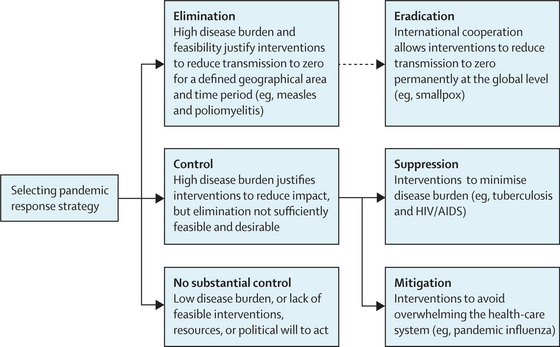Experts advocate in the medical journal Lancet that it is important to 'eliminate' the spread of infection to zero in future pandemics

Four epidemiologists and public health experts from New Zealand, Australia, and Singapore wrote an article in the medical journal The Lancet that ``pandemics like the new coronavirus infection (COVID-19) require a consistent response strategy.'' (The Lancet) and discussed future pandemic countermeasures and the role of WHO.
COVID-19 and other pandemics require a coherent response strategy - The Lancet
WHO continued to recognize COVID-19 as a Public Health Emergency of International Concern (PHEIC) at the 14th meeting of the Emergency Committee on COVID-19 on 27 January 2023. decided to remain vigilant. While the COVID-19 state of emergency declared on January 30, 2020 is entering its fourth year, the re-emergence of Mpox (monkeypox), which was newly designated as a PHEIC in July 2022, etc. , The threat of infectious diseases other than COVID-19 continues to be unpredictable.
WHO finally announces an emergency declaration due to the spread of the new coronavirus, and at the same time calls for a calm response-GIGAZINE

Under these circumstances, Michael Baker and Nick Wilson of the University of Otago, New Zealand, David Durrheim of the University of Newcastle, Australia, and Li Yang Hsu of the National University of Singapore, et al. The Lancet published a proposal summarizing countermeasures.
In it, Baker and colleagues present the following diagram of high-level strategic options for controlling infectious diseases that can develop into pandemics and PHEICs. In this chart, measures against infectious diseases are 'Elimination', which should intervene to reduce the spread of infection to zero, 'Control', which should reduce the impact even if it does not eliminate it, and whether the burden of the disease is low. It is divided into three options of 'No substantial control' for which there is no feasible intervention. In addition, 'exclusion' will shift to 'eradication' aiming for eradication through international cooperation, and 'suppression' will branch into 'Suppression' or 'Mitigation'.

The term itself was not newly proposed by Baker et al., but was gradually established in the history of measures against infectious diseases such as measles. Rather than the ambiguous term 'containment' that was often used in the -19 pandemic, it is desirable to use the word 'exclusion' to set the region and period to zero the spread of infectious diseases. '' he pointed out.
Baker et al. also say that 'elimination' should be the default option, especially for newly discovered emerging infectious diseases and re-emerging infectious diseases such as Mpox where epidemics have recurred. This is because slowing the spread of the disease through early decision-making on “elimination” strategies can buy time to develop effective interventions such as vaccines and therapeutics.

The role of WHO as the coordinating body for international infectious disease strategies is critical for countries around the world to implement such effective strategies. However, WHO was reluctant to close borders and restrict travel at the beginning of the outbreak of COVID-19, and as a result, travel to celebrate the Lunar New Year (Lunar New Year) in 2020 will spread COVID-19 from China to the world. I was not able to fully demonstrate my leadership, such as forgiving others.
With these points in mind, Baker et al. 'Perhaps the biggest lesson to be learned from the COVID-19 pandemic is that consistent strategies are crucial to curbing new emerging infectious diseases. , recommends that WHO, as part of the PHEIC assessment process, determine appropriate response strategies such as 'elimination', 'suppression' and 'mitigation', so that the global pandemic can be more proactive, WHO's role in supporting coordinated and effective approaches will be strengthened.'
Related Posts:
in Note, Posted by log1l_ks






